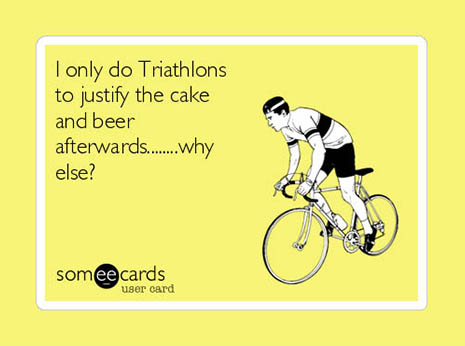Triathlon is a demanding physical endurance sport that requires athletes to swim, bike, and run for extended periods of time. Proper fueling is essential for triathletes to maintain energy levels, prevent dehydration, and optimize performance. In this post, we will discuss the role of nutrition in triathlon performance and provide tips for choosing the right foods and fluids to fuel your body before, during, and after a triathlon.
The role of nutrition in triathlon performance
Proper nutrition is essential for triathletes to perform at their best. Adequate fueling can improve endurance, recovery, and overall performance. During a triathlon, the body relies on stored glycogen (a form of carbohydrate) for energy. Consuming the right amount and types of carbohydrates before, during, and after a triathlon can help maintain glycogen levels and support endurance. In addition, adequate hydration is essential for preventing dehydration and maintaining physical performance.
The importance of carbohydrate and hydration during a triathlon
Carbohydrates are the primary source of energy for the body during exercise, and consuming adequate amounts of carbohydrates before and during a triathlon can help maintain energy levels and prevent fatigue. In the days leading up to a triathlon, it is important to consume a diet high in carbohydrates to ensure that glycogen stores are fully replenished. During the race, it is important to consume carbohydrates to maintain glycogen levels and support endurance. This can be done by consuming sports drinks, gels, or other easily digestible carbohydrate sources.
Hydration is also crucial for triathlon performance. Dehydration can lead to fatigue, muscle cramps, and decreased performance. It is important to hydrate properly before, during, and after a triathlon to prevent dehydration and maintain physical performance. During the race, it is important to consume fluids at regular intervals to replace fluids lost through sweat. Sports drinks can be a good choice for replacing both fluids and electrolytes lost through sweat.
Pre-race nutrition
Proper pre-race nutrition can set the stage for a successful triathlon. In the days leading up to the race, it is important to consume a diet high in carbohydrates to ensure that glycogen stores are fully replenished. This can include foods such as pasta, rice, bread, and other high-carbohydrate foods. It is also important to hydrate properly in the days leading up to the race to ensure that the body is well-hydrated at the start of the race.
On the day of the race, it is important to consume a pre-race meal that is high in carbohydrates and easy to digest. This can include foods such as oatmeal, bananas, and toast. It is also important to hydrate properly before the race, but be careful not to overdo it, as consuming too much fluid before the race can lead to gastrointestinal discomfort.
During-race nutrition
Proper fueling during a triathlon is essential for maintaining energy levels and preventing dehydration. It is important to consume carbohydrates during the race to maintain glycogen levels and support endurance. This can be done by consuming sports drinks, gels, or other easily digestible carbohydrate sources. It is also important to hydrate regularly during the race to replace fluids lost through sweat.
Post-race nutrition
Proper post-race nutrition is essential for supporting recovery and optimizing performance in future triathlons. After a triathlon, it is important to consume a meal or snack that is high in carbohydrates and protein within 30 minutes to an hour of finishing the race. This can help replenish glycogen stores and support muscle recovery. It is also important to continue hydration after the race to replace fluids lost through
Conclusion
In conclusion, proper nutrition is essential for triathletes to perform at their best. Consuming the right amounts and types of carbohydrates and staying hydrated before, during, and after a triathlon can help maintain energy levels, prevent dehydration, and support endurance. By planning ahead and making smart food and fluid choices, triathletes can fuel their bodies for success in their training and races.


Leave a Reply